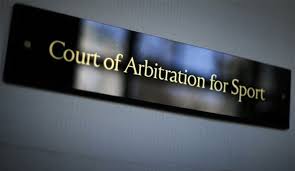By Paul Nicholson
February 28 – The Court of Arbitration for Sport (CAS), generally condemned by football’s stakeholders both privately and publicly for overturning the lifetime ban on former President of the Haitian Football Federation (FHF) Yves Jean-Bart for multiple allegations of sexual misconduct, has issued the reasoned arbitral award.
Following its judgement CAS was accused of not being fit for purpose, that its three male judges had failed to protect women in sport, with calls for FIFA to disregard the CAS award, a move that would ultimately threaten the very existence of CAS and sport’s highest court of appeal.
CAS’s reasoned award raises questions over FIFA’s arguing of the case before CAS. CAS also refutes allegations that witnesses were not protected by the process and that their anonymity would have been preserved.
One of the major criticism post-CAS appeal is that supporters of Jean-Bart had identified potential witnesses and had threatened them and their families of they testified against Jean-Bart. CAS does not address this accusation.
However CAS does highlight that “Jean-Bart’s counsel filed 66 written testimonies during the CAS proceedings, from 66 different witnesses, of which 21 were heard and questioned during the hearing on 23, 24 and 25 March 2022.
“These numerous and concordant oral and written testimonies established the nonexistence of sexual abuse allegedly committed on young players by Yves Jean-Bart,” said CAS.
In contrast FIFA presented just one witness who stated that “she had never witnessed the sexual abuse allegedly committed by Mr. Jean-Bart. This person added that Yves Jean-Bart had attempted to sexually abuse her during her first game with the U15 national team which took place abroad. However, it is established that Mr. Jean-Bart was not present at that match.”
CAS went on to say: “Other witnesses stated that they were not direct witnesses and had only heard about sexual abuse of players, thus contradicting their initial written testimonies. None of the testimonies heard by the CAS were sufficiently precise and convincing to establish Yves Jean-Bart’s guilt.”
The overwhelming reversal of multiple allegations of sexual misconduct against Jean-Bart with seemingly very little defence, to a swathe of testimony in his favour and only one witness against who was rapidly discredited in the eyes of CAS, is difficult to reconcile.
CAS said it recognised that there could “external pressure or possible threats” to potential witnesses and said that “the protection of the witnesses was at all times guaranteed” CAS said that “all witnesses who wished to do so were able to testify from a secure and secret location, without video, by encrypted telephone, with a voice modified by distortion, and in the presence of a trusted person from CAS”.
Ultimately CAS said “the facts presented in an attempt to establish the existence of sexual abuse were inconsistent, contradictory or even inaccurate. The CAS Panel could therefore not uphold them and confirm sanctions on the basis of circumstantial evidence alone.”
CAS does make the point, in conclusion, that while Jean-Bart’s appeal was upheld because his guilt could not be proven, his innocence could not be proven either.
For FIFA the failure at the appeal was that it had not managed to get its argument co-ordinated or verified – despite the huge body of what CAS calls circumstantial evidence. So at what point does the body of circumstantial evidence become a likelihood that the alleged offences were committed? And of testimonies are suddenly not holding water or witnesses are being threatened, why was this not taken into account.
Could CAS just have postponed the decision and given FIFA the opportunity to address the issues of witness intimidation and bring that before the court?
CAS said that it is “an adjudicating authority and not an investigating authority”. That certainly is the law, but is it hiding behind the law and neglecting a duty of care in favour of a male created and dominated judicial process?
Haitian women and women across the sport worldwide will feel betrayed, both by FIFA and the sports judiciary. CAS may see its judgement as embodying key principles of law – a reinforcement of the rule of law.
But is that really the case? For most observers and commentators it looks like a betrayal of the principles of justice, as well as of the women in the sport that have been subject to abuse – whether they are in Haiti or anywhere else in the world.
Contact the writer of this story at moc.l1745330153labto1745330153ofdlr1745330153owedi1745330153sni@n1745330153osloh1745330153cin.l1745330153uap1745330153

